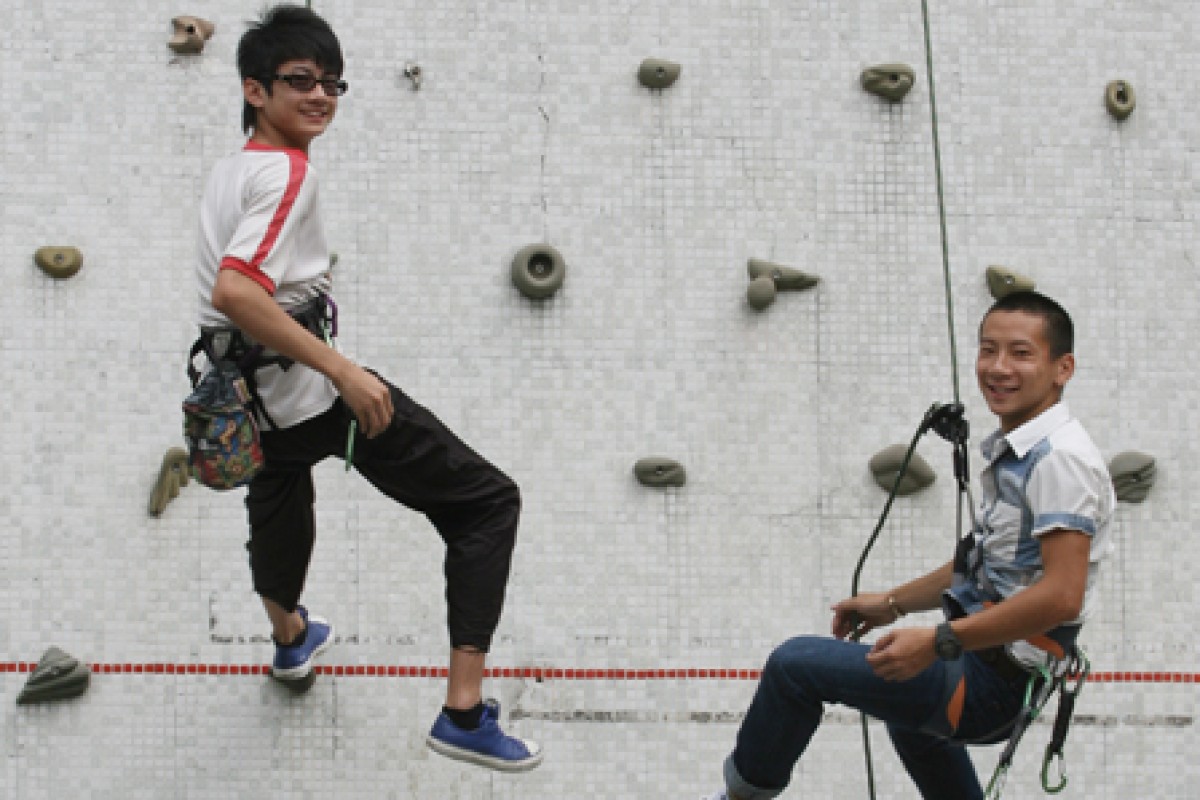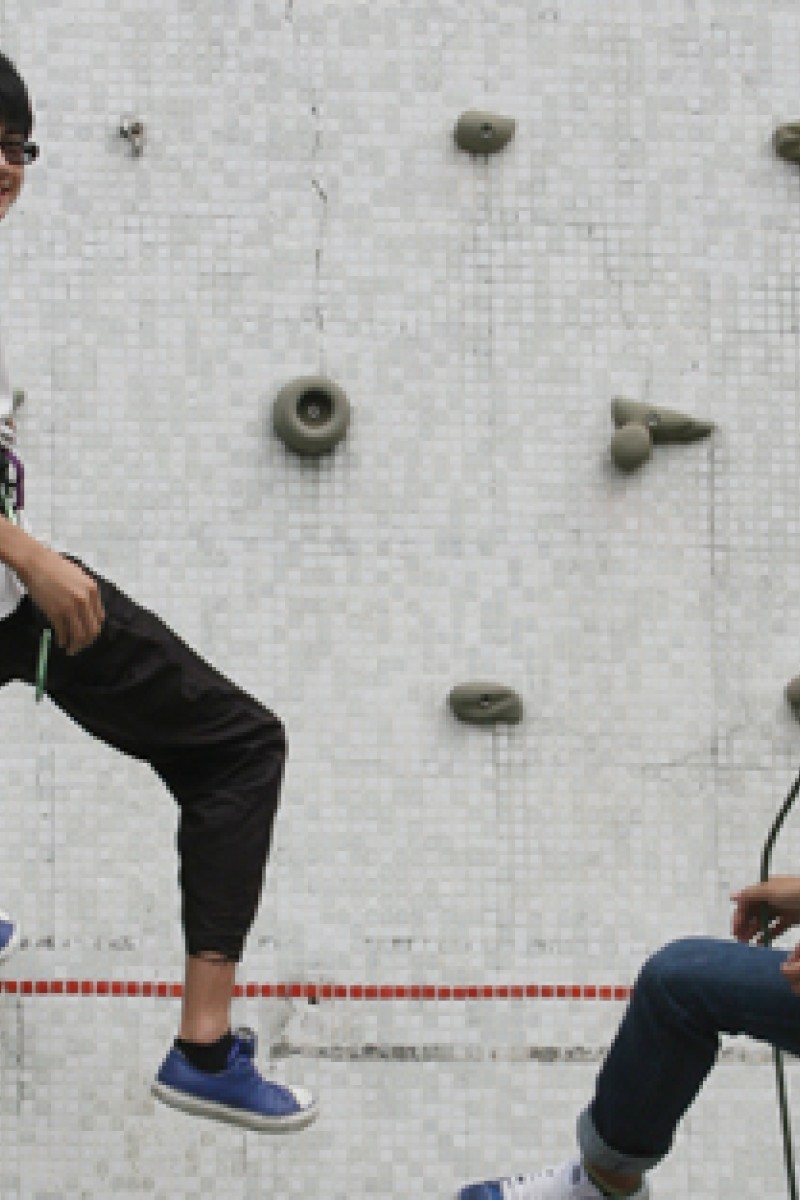 Au Chi-fung (left) and Nikolai Ng Tak-kin climbing in Tuen Mun.
Au Chi-fung (left) and Nikolai Ng Tak-kin climbing in Tuen Mun.What’s the difference between sports climbing and rock climbing? Sports climbing takes place at facilities like artificial climbing walls, while rock climbing is normally done on steep slopes or cliff faces.
Sports climbing athletes usually practise on outdoor climbing walls at LCSD sports centres or indoor walls run by private companies. But CCC Tam Lee Lai Fun Memorial Secondary School has a unique set-up on campus. The Tuen Mun school has three climbing walls: one indoors and two outdoors.
The school’s facilities have helped nurture many excellent climbers. Former Asian champion and two-time Asian junior champion Lai Chi-wai is a graduate. Young Post spoke to two top athletes from the school, Nikolai Ng Tak-kin and Au Chi-fung.
Nikolai graduated from the school two years ago. He has four years of experience in the sport and has represented Hong Kong numerous times, winning medals in major competitions like the National Championships for junior rock climbers held on the mainland.
“Other than competition, I like to explore the world and go to different countries to do climbing,” says Nikolai. “I think rock climbing is just like life. There is no fixed route for climbers to reach the top, and everybody has a different way to achieve his goal. There are also difficult points in the route that we need to face, equivalent to the challenges we have in daily life.”
Nikolai has worked many part-time jobs to pay for trips to countries including France and Thailand. He was working for an indoor climbing club in Hong Kong and just quit to make a trip to Yangshuo in Guilin, Guangxi province, next month.
“Yangshuo has many mountains and is easily accessible. I only need to take a 10-hour bus trip from Shenzhen,” he says.
He loves travel very much. Although he couldn’t speak English before, he is now fluent.
“I could hardly say ‘What is your name?’ when I was younger. But after travelling to different places, I can chat freely with foreigners.”
The 18-year-old rock climbing ace wants to make more trips in the future – “Rock climbing is not only a sport, but also a lifestyle for me. I enjoy working hard and saving money for climbing trips,” he says – and has signed up for a new job in Macau using his skills: cleaning and fixing things at great heights.
During Nikolai’s secondary studies, he inspired Chi-fung to join the sport. Chi-fung has taken leadership of the team since Nikolai’s graduation. The Form Five student has also won medals in local and national competitions and aims to promote the sport at school.
“We have just recruited some Form One students, and we have a girl on our team now,” says the 16-year-old.
One thing Chi-fung learned from his hobby: he’s not afraid of heights.
“I love to reach the top of the climbing wall to see the view from there. I like staying there and viewing the neighbourhood from a different angle,” he says. But unlike Nikolai, Chi-fung is not so fond of outdoor rock climbing.
At the end of our interview, Nikolai adds that rock climbing is actually not as dangerous as many people might think.
“With enough safety precautions, the chance of injuries or fatalities is very low.” he says. “It is safer than many contact sports.”
Checking the weather before climbing is important, as rain may make the rocks slippery.
“My friends and I may choose to climb on rainy days, but I only do that at places I am familiar with, like Lion Rock, and not in other countries,” Nikolai says.
If you don’t have a climbing wall at your school but you are interested in joining the sport, you can apply for the sports and rock climbing courses given by the Hong Kong Mountaineering Union. The sport’s local governing body conducts rock climbing courses, sponsored by the LCSD, for the public every quarter.
Applications for courses next quarter (January to March 2012) have already started. Visit www.hkmu.org.hk for more details.
